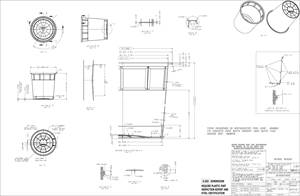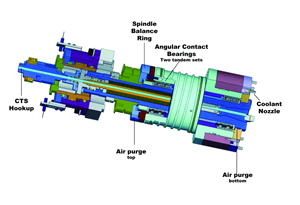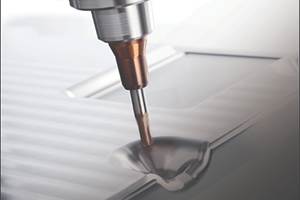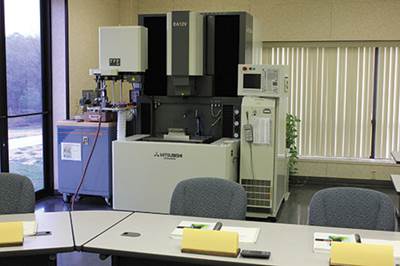Using Technology Benchmarks to Determine Operational Performance
Everyone wants to optimize efficiency and cost savings.
Share
Everyone wants to optimize efficiency and cost savings. Even mold shops that are equipped with high-speed machining centers to fabricate electrodes quicker and EDMs with robotics and sensors to operate unattended still need to cut additional costs. This should raise two questions about your own current equipment and operations:
1. Is a particular piece of equipment operating at optimum levels?
2. Is there a way to reduce costs without sacrificing the quality or productivity of this piece of equipment?
Technology benchmark data can help gauge machine performance within a specific set of parameters. Comparing current performance with benchmarked performance will determine if the machine is performing to standard. If it is not, then the cause should be investigated.
Specific benchmark data should be available in the operations manual for each piece of equipment on the shop floor, and this data can help you determine the effect that this equipment has on your manufacturing costs. The operation of this equipment may not always match the benchmark data if the operator changes machine parameters. Changes or “tweaks” to power, on/off times, jump cycles or flushing, for example, could be forcing the machine to run at a performance level different from the benchmark. If this is the case, the costs associated with that machine will likely be higher. For example, if a machine is not performing EDM at its full potential, burn time is longer, which increases the cost of running the machine, prevents the next job from starting and lowers throughput.
Data on the equipment’s consumable goods, such as electrode material or wire, should also be examined. Using benchmark data for both equipment and consumable goods will provide a complete picture of the effectiveness of a specific manufacturing operation. For example, using data from the EDM manufacturer and graphite electrode vendor will enable you to compare actual costs against accepted benchmarks, and then identify areas of potential savings in the EDM process.
This analysis should show you how to reduce manufacturing times to increase productivity and throughput with your existing resources. For example, on a sinker EDM, this could entail a change in the EDM program, the electrode material or both. Oftentimes, the wrong electrode material is chosen for an application. If surface finish is the key concern and a low-grade electrode material is used with a high-grade program, the desired results will not be achieved. By matching the program, application and electrode material, you can reduce burn time and electrode wear, and improve surface finish. All of these increase machine performance and can ultimately reduce the manufacturing costs of that particular job.
The costs associated with conducting a benchmarking study can be minimized by working with suppliers (who may visit for a “no-cost” benchmark analysis to help determine if the asset is running at optimum performance), and these costs are often outweighed by the realized savings. Also, shops that only consider the costs of one manufacturing aspect rather than total production costs remain vulnerable to the competition. Reviewing and optimizing all areas of manufacturing will add value to the bottom line.
To keep up to date on the most current equipment and consumable goods information, it is highly recommended that technology benchmark data be reviewed annually and measured against actual performance.
Related Content
It Starts With the Part: A Plastic Part Checklist Ensures Good Mold Design
All successful mold build projects start with examining the part to be molded to ensure it is moldable and will meet the customers' production objectives.
Read MoreMachining Center Spindles: What You Need to Know
Why and how to research spindle technology before purchasing a machining center.
Read MoreMoldmakers Deserve a Total Production Solution
Stability, spindle speed and software are essential consideration for your moldmaking machine tool.
Read MoreHands-on Workshop Teaches Mold Maintenance Process
Intensive workshop teaches the process of mold maintenance to help put an end to the firefighting culture of many toolrooms.
Read MoreRead Next
Understanding the Total Package of the EDM Production Process Is the Key to Raising Productivity
The best way to determine the training best suited to your company is to find out what your customers need.
Read MoreHow to Use Continuing Education to Remain Competitive in Moldmaking
Continued training helps moldmakers make tooling decisions and properly use the latest cutting tool to efficiently machine high-quality molds.
Read MoreHow to Use Strategic Planning Tools, Data to Manage the Human Side of Business
Q&A with Marion Wells, MMT EAB member and founder of Human Asset Management.
Read More





















